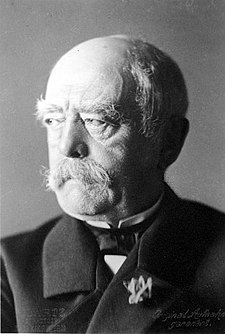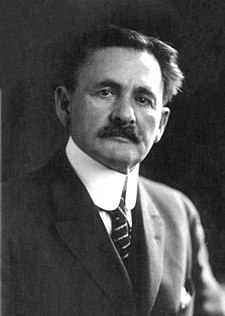Downloads - ecology - at one of top universities with 29 Nobel Prize winners affiliated with it.
Downloads, recently. Environmental science, ecology. Downloaded from Internet, from the network ResearchGate.
http://5bio5.blogspot.com/2014/01/downloads-ecology-at-one-of-top.html
Downloads, recently. Environmental science, ecology. Downloaded from Internet, from the network ResearchGate.
http://5bio5.blogspot.com/2014/01/downloads-ecology-at-one-of-top.html
Researcher who downloaded the full-texts:
The artilce was downloaded:
(first co-author: Sergei A. Ostroumov)
8 hours ago
The link to get the downloaded article:
https://www.researchgate.net/publication/200594244_Medium-term_and_long-term_priorities_in_ecological_studies._httpscipeople.comuploadsmaterials43893RivistaBio96Priorities2.rtf**
On the university:
The Humboldt University of Berlin is one of Berlin's oldest universities, founded in 1810 as the University of Berlin;
Nobel Laureates: 29
The Humboldt University of Berlin is one of Berlin's oldest universities, founded in 1810 as the University of Berlin;
Nobel Laureates: 29
Notable alumni, professors and lecturers (some examples)
- Theodore Dyke Acland (1851–1931), surgeon and physician
- Alexander Altmann (1906–1987), rabbi and scholar of Jewish philosophy and mysticism
- Gerhard Anschütz (born 1948) leading jurisprudent and "father of the constitution" of the Bundesland Hesse
- Michelle Bachelet (born 1951), pediatrician and epidemiologist, president of the Republic of Chile
- Azmi Bishara (born 1956), Arab-Israeli politician
- Bruno Bauer (1809–1882), theologian, Bible critic and philosopher
- Jurek Becker (1937–1997), writer (Jacob the Liar)
- Eliezer Berkovits (1908–1992), rabbi, philosopher and theologian
- Otto von Bismarck (1815–1898), first German chancellor
- Dietrich Bonhoeffer (1906–1945), theologian and resistance fighter
- Max Born (1882–1970), physicist, Nobel Prize for physics in 1954
- Gottlieb Burckhardt (1836–1907), psychiatrist, first physician to perform modern psychosurgery (1888)
- Michael C. Burda, macroeconomist
- George C. Butte (1877–1940), American jurist
- Stepan Shahumyan (1878–1918), communist politician and head of the Baku Commune
- Ezriel Carlebach (1909–1956), Israeli journalist and editorial writer
- Ernst Cassirer (1874–1945), philosopher
- Adelbert von Chamisso (1781–1838), natural scientist and writer
- Angela Davis (born 1944), political activist, educator, author, philosopher
- Zakir Hussain (1897–1969), third president of India
- Wilhelm Dilthey (1833–1911), philosopher
- W. E. B. Du Bois (1868–1963), African-American activist and scholar
- Paul Ehrlich (1854–1915), physician, Nobel Prize for medicine in 1908
- Albert Einstein (1879–1955), physicist, Nobel Prize for physics in 1921
- Friedrich Engels (1820–1895), journalist and philosopher
- Ludwig Andreas Feuerbach (1804–1872), philosopher
- Johann Gottlieb Fichte (1762–1814), philosopher, rector of the university (1810–1812)
- Hermann Emil Fischer (1852–1919), founder of modern biochemistry, Nobel Prize in chemistry in 1902
- Werner Forßmann (1904–1979), physician, Nobel Prize for medicine in 1956
- James Franck (1882–1964), physicist, Nobel Prize for physics in 1925
- Ernst Gehrcke (1878–1960), experimental physicist
- Jacob Grimm (1785–1863), linguist and literary critic
- Wilhelm Grimm (1786–1859), linguist and literary critic
- Fritz Haber (1868–1934), chemist, Nobel Prize for chemistry in 1918
- Otto Hahn (1879–1968), chemist, Nobel Prize for chemistry in 1944
- Sir William Reginald Halliday (1886–1966), principal of King's College London (1928–1952)
- Robert Havemann (1910–1982), chemist, co-founder of European Union, and leading GDR dissident
- Georg Wilhelm Friedrich Hegel (1770–1831), philosopher
- Heinrich Heine (1797–1856), writer and poet
- Werner Heisenberg (1901–1976), physicist, Nobel Prize for physics in 1932
- Hermann von Helmholtz (1821–1894), physician and physicist
- Gustav Hertz (1887–1975), physicist, Nobel Prize for physics in 1925
- Heinrich Hertz (1857–1894), physicist
- Abraham Joshua Heschel (1907–1972) rabbi, philosopher, and theologian
- Jacobus Henricus van 't Hoff (1852–1911), chemist, Nobel Prize for chemistry in 1901
- Max Huber (1874–1960), international lawyer and diplomat
- Christoph Wilhelm Hufeland (1762–1836), founder of macrobiotics
- Wilhelm von Humboldt (1767–1835), politician, linguist, and founder of the university
- Alexander von Humboldt (1769–1859), natural scientist
- Hermann Kasack (1896–1966), writer
- George F. Kennan (1904–2005), American diplomat, political scientist and historian
- Gustav Kirchhoff (1824–1887), physicist
- Robert Koch (1843–1910), physician, Nobel Prize for medicine in 1905
- Komitas (1869-1935), Armenian musician
- Albrecht Kossel (1853–1927), physician, Nobel Prize for medicine in 1910
- Arnold Kutzinski (died 1956), psychiatrist
- Arnold von Lasaulx (1839–1886) mineralogist and petrographer
- Max von Laue (1879–1960), physicist, Nobel Prize for physics in 1914
- Yeshayahu Leibowitz (1903–1994), Israeli public intellectual and polymath
- Wassily Leontief (1905–1999), economist, Nobel Prize for economics in 1973
- Karl Liebknecht (1871–1919), socialist politician and revolutionary
- Friedrich Loeffler (1852–1915), bacteriologist
- Herbert Marcuse (1898–1979), philosopher
- Karl Marx (1818–1883), philosopher
- Ernst Mayr (1904–2005), biologist
- Lise Meitner (1878–1968), physicist, Enrico Fermi Award in 1966
- Felix Mendelssohn Bartholdy (1809–1847), composer
- Theodor Mommsen (1817–1903), historian, Nobel Prize for literature in 1902
- Edmund Montgomery (1835–1911), philosopher, scientist, physician
- Max Planck (1858–1947), physicist, Nobel Prize for physics in 1918
- Leopold von Ranke (1795–1886), historian
- Robert Remak (1815–1865), cell biologist
- Friedrich Wilhelm Joseph von Schelling (1775–1854), philosopher
- Friedrich Daniel Ernst Schleiermacher (1768–1834), philosopher
- Bernhard Schlink (born 1944), writer, Der Vorleser (The Reader)
- Carl Schmitt (1888–1985), German jurist, political theorist, and professor of law.
- Menachem Mendel Schneerson (1902–1994), rabbi, philosopher, and theologian
- Arthur Schopenhauer (1788–1860), philosopher
- Erwin Schrödinger (1887–1961), physicist, Nobel Prize for physics in 1933
- Peter Schubert (1938–2003), diplomat and albanologist
- Georg Simmel (1858–1918), philosopher and sociologist
- Joseph B. Soloveitchik (1903–1993), rabbi, philosopher, and theologian
- Herman Smith-Johannsen (1875–1987), sportsman who introduced cross-country skiing to North America
- Werner Sombart (1863–1941), philosopher, sociologist and economist
- Hans Spemann (1869–1941), biologist, Nobel Prize for biology in 1935
- Hermann Stieve (1886–1952), anatomist who did research on bodies of Nazi execution victims
- Max Stirner (1806–1856), philosopher
- Yemima Tchernovitz-Avidar (1909–98), Israeli author
- Gustav Tornier (1859–1938), paleontologist and zoologist
- Kurt Tucholsky (1890–1935), writer and journalist
- Rudolf Virchow (1821–1902), physician and politician
- Alfred Wegener (1880–1930), scientist, geologist, and meteorologist, early theorist of continental drift
- Karl Weierstraß (1815–1897), mathematician
- Max Westenhöfer (1871–1957), pathologist, proposed the Aquatic ape hypothesis, reformer of field of pathology in Chile
- Wilhelm Heinrich Westphal (1882–1978), physicist
- Wilhelm Wien (1864–1928), physicist, Nobel Prize for physics in 1911
- Ulrich von Wilamowitz-Moellendorff (1848–1931), philologist
- Richard Willstätter (1872–1942), chemist, Nobel Prize for chemistry in 1915
- Komitas Vardapet (1869–1935), Armenian priest, composer, choir leader, singer, music ethnologist, music pedagogue and musicologist
- Ian Battenberg (born 1990), Anglo-German member of the Battenberg family, a morganatic branch of the House of Hesse-Darmstadt, former rulers of the Grand Duchy of Hesse
There are 40 Nobel Prize winners affiliated to the Humboldt University, namely:
- 1901 Jacobus Henricus van 't Hoff (Chemistry)
- 1901 Emil Adolf von Behring (Physiology or Medicine)
- 1902 Hermann Emil Fischer (Chemistry)
- 1902 Theodor Mommsen (Literature)
- 1905 Adolf von Baeyer (Chemistry)
- 1905 Robert Koch (Physiology or Medicine)
- 1907 Albert Abraham Michelson (Physics)
- 1907 Eduard Buchner (Chemistry)
- 1908 Paul Ehrlich (Physiology or Medicine)
- 1909 Karl Ferdinand Braun (Physics)
- 1910 Otto Wallach (Chemistry)
- 1910 Albrecht Kossel (Physiology or Medicine)
- 1910 Paul Heyse (Literature)
- 1911 Wilhelm Wien (Physics)
- 1914 Max von Laue (Physics)
- 1915 Richard Willstätter (Chemistry)
- 1918 Fritz Haber (Chemistry)
- 1918 Max Planck (Physics)
- 1920 Walther Nernst (Chemistry)
- 1921 Albert Einstein (Physics)
- 1925 Gustav Ludwig Hertz (Physics)
- 1925 James Franck (Physics)
- 1925 Richard Adolf Zsigmondy (Chemistry)
- 1928 Adolf Otto Reinhold Windaus (Chemistry)
- 1929 Hans von Euler-Chelpin (Chemistry)
- 1931 Otto Heinrich Warburg (Physiology or Medicine)
- 1932 Werner Heisenberg (Physics)
- 1933 Erwin Schrödinger (Physics)
- 1935 Hans Spemann (Physiology or Medicine)
- 1936 Peter Debye (Chemistry)
- 1939 Adolf Butenandt (Chemistry)
- 1944 Otto Hahn (Chemistry)
- 1950 Kurt Alder (Chemistry)
- 1950 Otto Diels (Chemistry)
- 1953 Fritz Albert Lipmann (Physiology or Medicine)
- 1953 Hans Adolf Krebs (Physiology or Medicine)
- 1954 Max Born (Physics)
- 1956 Walther Bothe (Physics)
- 1991 Bert Sakmann (Physiology or Medicine)
- 2007 Gerhard Ertl (Chemistry)
Rankings
In 2013 QS World University Rankings ranked Humboldt University
126th overall in the world, and
7th in Germany.
Its subject rankings were:
22nd in Arts & Humanities, 184th in Engineering & IT, 123rd in Life Sciences & Biomedicine, 87th in Natural Sciences, and 90th in Social Sciences.
The Times Higher Education World University Ranking 2013–14 listed Humboldt-University as the 94th best university in the world and 6th best in Germany.


















